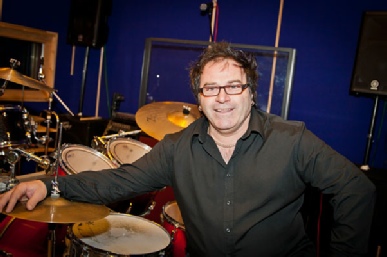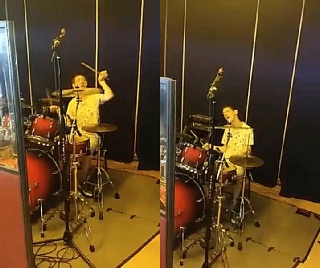








Tano Drums is partner with Solidrums-Europe Quality drums from Argentina.






Physical and Learning Disabilities
Drumming Helps To Heal
Current research is now verifying the therapeutic effects of rhythm techniques. Recent research reviews indicate that drumming accelerates physical healing, boosts the immune system and produces feelings of well-being, a release of emotional trauma, and reintegration of self. Other studies have demonstrated the calming, focusing, and healing effects of drumming on Alzheimer’s patients, autistic children, emotionally disturbed teens, recovering addicts, trauma patients, and prison and homeless populations. Drumming is a valuable treatment for stress, fatigue, anxiety, hypertension, asthma, chronic pain, arthritis, mental illness, migraines, cancer, multiple sclerosis, Parkinson’s disease, stroke, paralysis, emotional disorders, and a wide range of physical disabilities.

Drumming Produces Deeper Self-Awareness by Inducing Synchronous Brain Activity
The physical transmission of rhythmic energy to the brain synchronises the two cerebral hemispheres. When the logical left hemisphere and the intuitive right hemisphere begins to pulsate in harmony, the inner guidance of intuitive knowing can then flow unimpeded into conscious awareness. The ability to access unconscious information through symbols and imagery facilitates psychological integration and a reintegration of self. Drumming also synchronises the frontal and lower areas of the brain, integrating non-verbal information from lower brain structures into the frontal cortex, producing feelings of insight, understanding, integration, certainty, conviction, and truth, which surpass ordinary understandings and tends to persist long after the experience, often providing foundational insights for religious and cultural traditions.
Drumming Accesses the Entire Brain
The reason rhythm is such a powerful tool is that it permeates the entire brain. Vision for example is in one part of the brain, speech another, but drumming accesses the whole brain. The sound of drumming generates dynamic neuronal connections in all parts of the brain even where there is significant damage or impairment such as in Attention Deficit Disorder (ADD). According to research rhythmic cues can help retrain the brain after a stroke or other neurological impairment, as with Parkinson’s patients. The more connections that can be made within the brain, the more integrated our experiences become.
Drumming Induces Natural Altered States of Consciousness
Motivate interaction with others
People with physical disabilities may encounter decreased opportunities and motivation for social interaction. Music therapy can provide opportunities to interact with peers through a shared experience. Group ensembles provide opportunities to develop peer relationships, develop social interaction skills and provide opportunities for co-operation working as a group towards a common goal. Group music therapy sessions can also provide opportunities to share personal experiences with others.
Drumming Induces Natural Altered States of Consciousness
Rhythmic drumming induces altered states, which have a wide range of therapeutic applications. A recent study by Barry Quinn, Ph.D. demonstrates that even a brief drumming session can double alpha brain wave activity, dramatically reducing stress. The brain changes from Beta waves (focused concentration and activity) to Alpha waves (calm and relaxed), producing feelings of euphoria and well-being.
Foster independence, self-confidence- and self-esteem
As physical abilities improve, and people have increased opportunities to practice and acquire new skills and abilities, independence can be fostered and self-confidence and self-esteem enhanced. A positive self-image and self-concept can be developed through music therapy interventions and music therapy activities can be adapted according to the individual’s needs and capabilities. This may involve adapting instruments or songs to make them more accessible and to ensure that the musical experience can be successful while continuing to provide challenges to the individual. Music therapy can help these students to develop positive attitudes toward their disabilities and provide opportunities for personal growth an self-expression.
